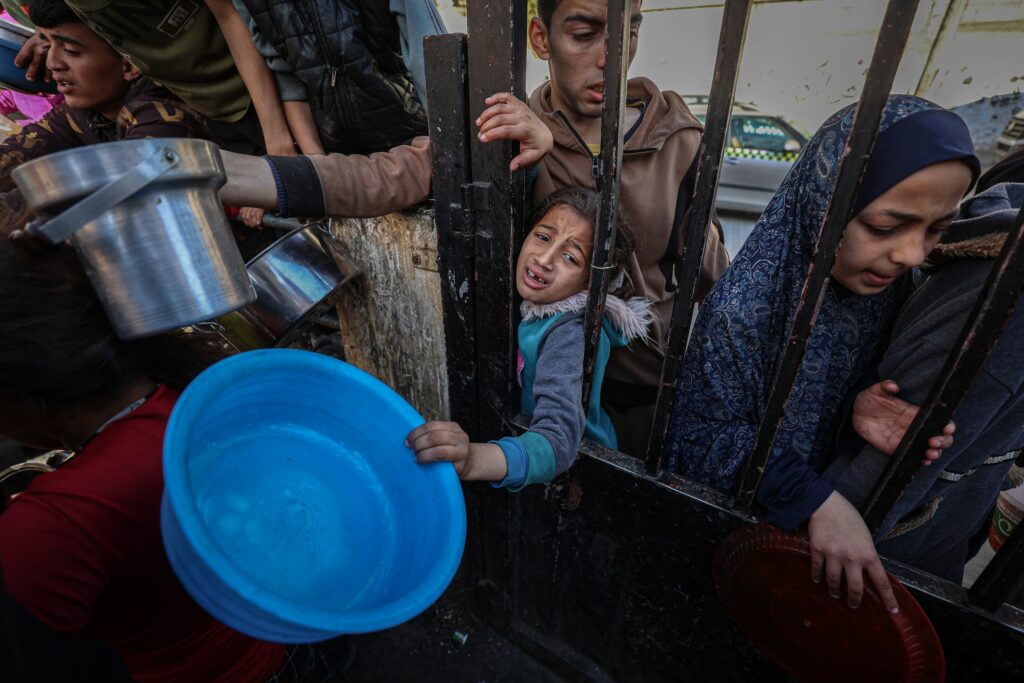by Andrea Tucci,
In 2016, international relations expert Alex de Waal, director of the World Peace Foundation at Tufts University in the United States, published an article in the New York Times, in which he argued that the times of mass famine were over, thanks above all to democratization of many countries and at the end of bloody conflicts. Evidently, he was wrong…
In 2016 the United Nations estimated that there were 130 million people in need of urgent aid. By the end of 2023 the figure had risen to 363 million, an increase of 180 percent. The true epicenter of the food crisis is the Horn of Africa.
Around 90 million people suffer from hunger in Ethiopia, Somalia, South Sudan, Sudan and, on the other side of the Red Sea, in Yemen. These countries have a long history of serious food shortages, but we have never seen them all sink into famine at the same time. Ethiopia, hit in the years 2020-2022 by a war that caused six hundred thousand deaths. Abandoned farms and crops, dead animals.
The drought and subsequent rains, which were too intense, have condemned more than 90 percent of the six million population to malnutrition. Two-thirds of the world’s hungry people live in conflict zones such as Sudan and Gaza or are trying to escape from there. Hunger has returned to threaten a dozen other countries, including Afghanistan, Syria and Mali.
The money allocated for aid is not enough. Until five years ago, the UN’s annual emergency appeals managed to be funded at 60 percent.
In 2023 this percentage has fallen to 35 percent and is expected to be even lower this year. The reasons why states donate less are various: from the higher cost of food products to the corruption scandals in which some humanitarian organizations have been involved (such as the USAID agency in Ethiopia) and which undermine trust in their interventions. But world hunger is not only a stain on consciences but also a threat to security. Famines can lead societies to collapse. Push millions of people to migrate. Fueling desperation and protests. And finally, topple governments.”
The conflict between Israel and Gaza has worsened the hunger and suffering of Palestinians in the region.
In recent weeks, the threat of famine has intensified in Gaza and 1.1 million children are at risk of starvation and severe malnutrition, with some facing the imminent danger of death.

Displaced Palestinians gather to collect food donated by a charitable youth group in Rafah, Gaza, on March 12. It was the second day of the holy month of Ramadan. Loay Ayyoub/The Washington Post/Getty Images
Lately with the help of Open Arms, a Mediterranean rescue vessel, there were already provided more than 37 million meals to families in war-torn Gaza by land, sea.
Chef José Andrés Founder and Chief Feeding officer of the World Central Kitchen (WCK) says: We want to help of the inhumane conditions endured by the Palestinian civilian population.
Workers have been unpacking the 200 tons of food aid on smaller boats off the shore of the Gaza City.
Over 30,000 lives lost to bombings and hundreds of thousands of people facing the threat of starvation due to the severe violations of human rights endured by the civilian population.
In 2010, Chef José Andrés, ready to use his culinary knowledge and talent to help, headed to Haiti following a devastating earthquake. Cooking alongside displaced families in a camp, he was guided on the proper way to cook black beans the way Haitians like to eat them. He continues saying:” it wasn’t just about feeding people in need is just about listening, learning, and cooking side by side with the people impacted by the crisis”. This is the real meaning of comfort food, and it’s the core value that José, along with his wife Patricia, used at the center of founding World Central Kitchen.
Is been already seven years after José founded World Central Kitchen is focusing on resilience programs, investing in longer-term solutions, serving meals to people recovering from crisis every single day. Hurricanes, wildfires, tsunamis, and volcano eruptions took the team across the world, growing in knowledge and capacity with each crisis. Andrés says: “We respond providing nourishing meals for refugees Ukrainian families living through an unthinkable invasion and the constant threat of attack”.
Over the years, José and WCK teams have continued to learn, adapt, and build responses unique to each situation and community.
World Central Kitchen teams across the world remain deeply committed to serving delicious, chef-prepared meals to people with the dignity they deserve.
In 2019, José Andrés was nominated for the Nobel Peace Prize for his humanitarian work.
Well “Chapeau” Mr. Andres!!!
